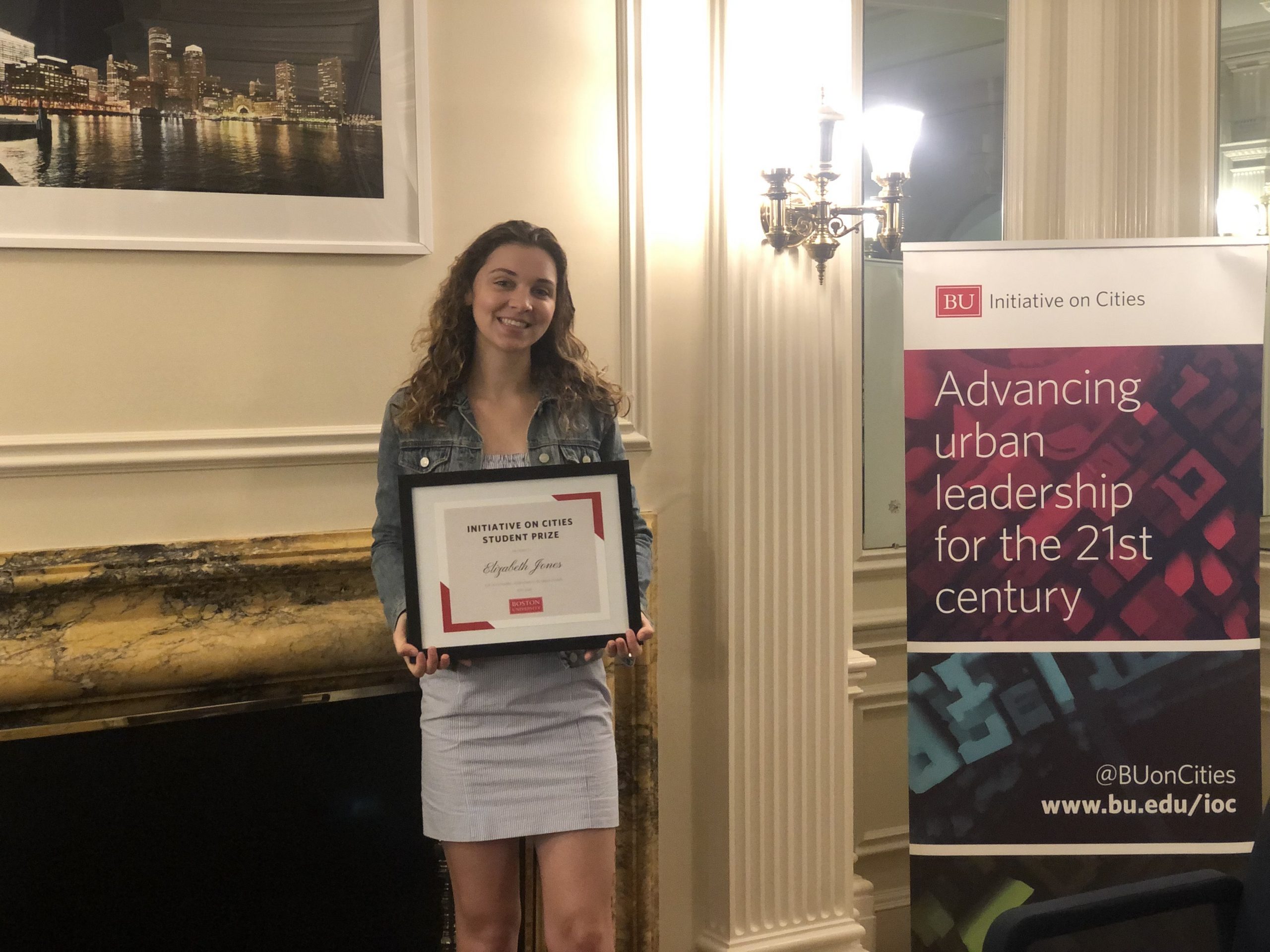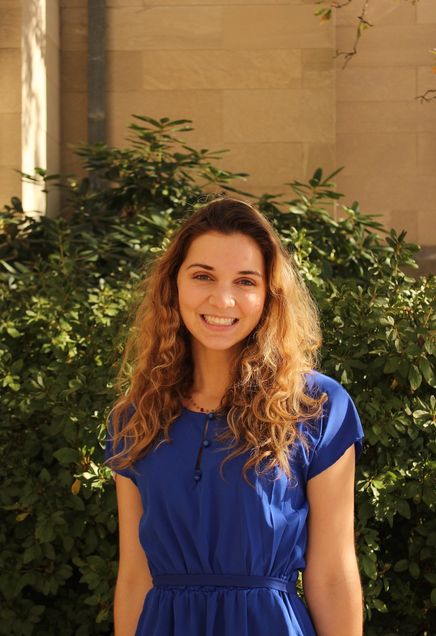Elizabeth Jones Awarded Inaugural Initiative on Cities Student Prize
The Initiative on Cities (IOC) is proud to announce that Elizabeth Jones has been awarded the IOC Student Prize. The $1,000 prize is presented annually to one BU senior who is graduating with a minor in Urban Studies.
Elizabeth (CAS ’22) double majored in Architectural Studies and American & New England Studies with a minor in Urban Studies in the College of Arts and Sciences (CAS). Originally from Birmingham, Alabama, she began her freshman year studying at Bryn Mawr College in Philadelphia and transferred to BU her sophomore year. She graduated this spring and is excited to begin work in the higher education consulting field in Boston. You can find Elizabeth doing landscape watercolors at Brookline’s Amory Park, trying out new restaurants and art galleries in the city’s many neighborhoods, or getting outdoors with her friends to any of the surrounding parks near the city like the Middlesex Fells or Olmsted Park.

We asked Elizabeth a few questions about her experience in the Urban Studies minor and her future plans:
Amelia (IOC): Why did you choose to minor in Urban Studies?
Elizabeth Jones: For me, minoring in urban studies gave me the ability to explore ‘urbanism’ and the ‘city’ through a variety of disciplines rather than just my majors’ perspectives on urbanism. While we do not have an Urban Studies major at BU, the minor perfectly suited my two majors and allowed me to dig deeper into the interdisciplinary nature of the field of study and discover a multitude of CAS departments which fit my interests like sociology, political science, and history.
What was your favorite class in the minor?
While this is truly a tough question to answer, the most standout course has been Boston Architecture and Urbanism, as I was able to not only take a course with my Architectural Studies major advisor, Professor Abramson, but also dig deeper into the surrounding community of BU on an academic level. When I visit the city and tour its museums, historical sites, and various neighborhoods, I always find myself sharing facts and stories from the course with my friends and colleagues. The extremely unique founding and creation of the city we live in, from a boggy swamp to a key site for the Revolutionary War, Boston’s founding and history are far from boring.
 What have you learned from the Urban Studies courses?
What have you learned from the Urban Studies courses?
I’ve learned that the best way to approach the problems afflicting urban communities and spaces today is to look at the issue(s) from a multitude of perspectives and find the best solution for that specific problem as there truly is not a one size fits all scenario from my experiences in public policy and academia. Being able to dig deeper into the societal and injustice implications of modern urban life has given me purpose in my professional work this far to seek out equitable, progressive solutions to the problems urban communities face, such as redlining, gentrification, and how to support diverse and inclusive business enterprises in developing communities.
What are your plans after graduation?
Currently I am planning to stay in Boston as I will be working at Huron Consulting as a Higher Education Analyst. The position allows me to explore the intricacies of colleges and universities across the country; [an area of interest to me since] a multitude of my research projects at BU helped me discover that colleges truly are “micro-cities” with their own systems, regulations, and governance. Furthermore, I hope to one day pursue my graduate degree in urban planning to continue learning and delving into the intricacies of urban life, policy, and diversity and inclusion matters as these issues have driven me in my academic and professional career this far and I strongly feel that they will continue to influence my life choices.
Do you have a message for any undergraduate students considering the Urban Studies minor?
I advise all students considering the minor to fully go for it! Try a variety of classes from different departments and you will undoubtedly find a multitude of connections to your major’s department whether it be political science or biology- everything is connected to urban life and its effects and causes.